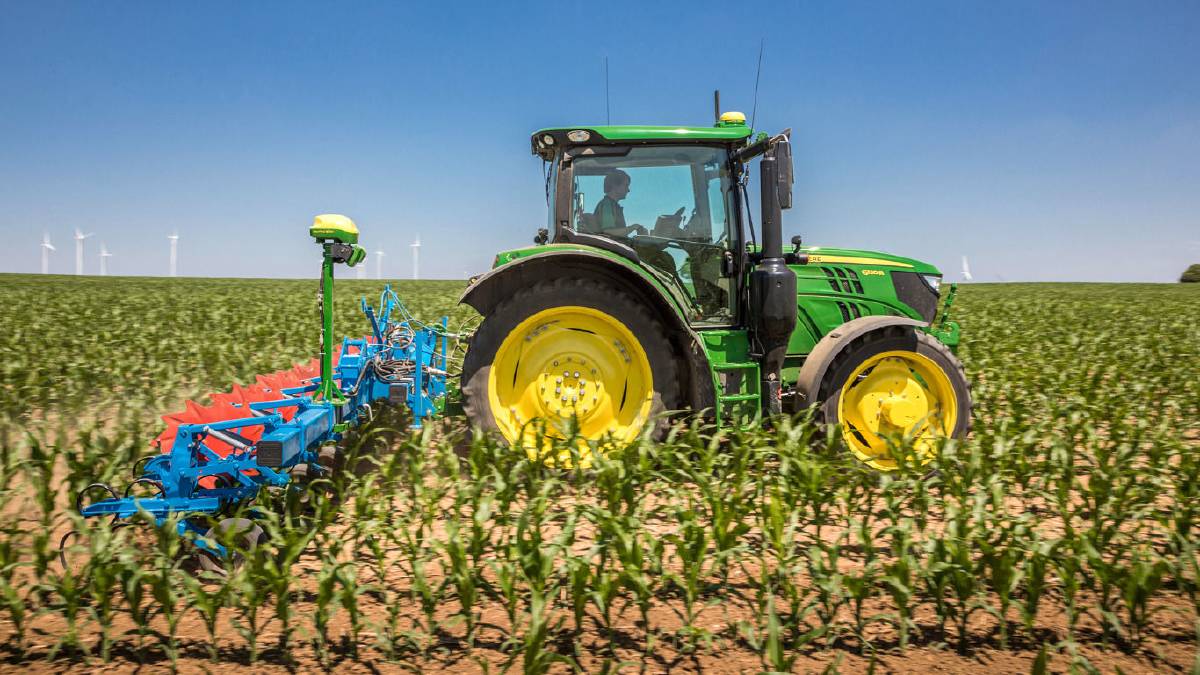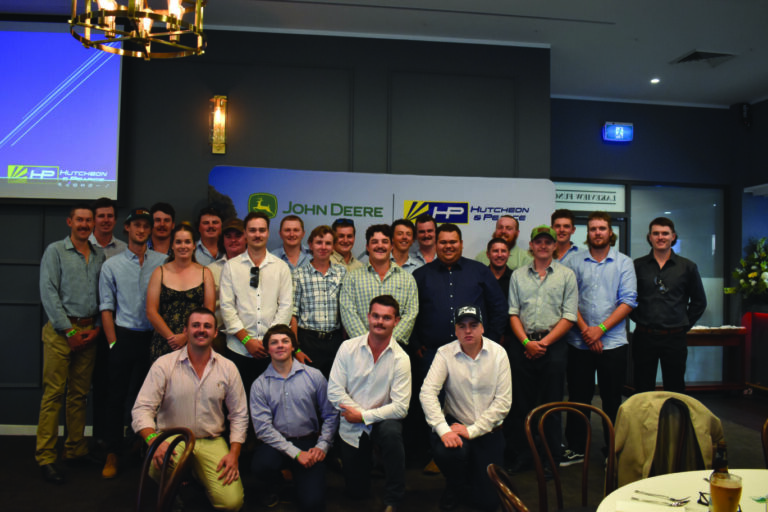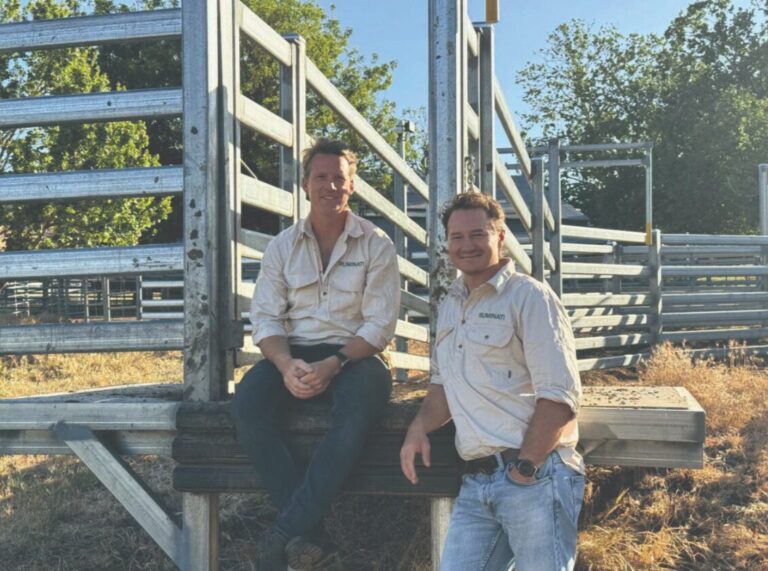Subscribe To Our Weekly Newsletter
Categories
While the rain is an ongoing concern for harvest, the season is again shaping up well for many farmers in our territory. We caught up with Junee-based agronomist Greg Condon to see what’s happening for his clients.
For the past 20 years, Greg Condon and wife Kirrily have operated as Grassroots Agronomy, providing advice to farmers across the Riverina and Central West.
For his clients, Greg said the season has been largely positive
“It’s been another amazing season, given really mild temperatures and timely rainfall. We had subsoil moisture from the summer fallow period, so crops were sown into favourable moisture. It was a little bit dry to start with for canola, but that soon improved with rain in late autumn.
“It’s been a really positive year for grazing crops and pastures for our mixed clients running sheep. They’ve basically been able to run their sheep enterprise for the whole year with no supplementary feeding, so the cost base has been really low. That makes a big impact on margin when prices are quite high and they’re able to finish lambs and produce wool cheaply.
“The challenge for most clients has been crop nutrition; keeping crops fed on the back of a big year like 2020. Cropping has been a bit more expensive this year given some of the higher inputs required, particularly with nitrogen. Still, the rewards are there with some above average prices on offer and some strong yield potential if and when they can get crops off.
“The rain may make for a bit of a slow harvest in some areas. For those clay soils like in Quandialla or Ganmain, the wet season has created different challenges with things like disease and waterlogging, but largely it’s a very positive season – some of the best seen with certain crops.”
One thing Greg is recommending for farmers right now is making weed management a priority because long, cool seasons are not only good for wheat and canola, but also for ryegrass and wild oats.
“I also work with a group called WeedSmart, which is a not-for-profit organisation that helps promote sustainable weed management. In these wetter years weed management is a higher priority so we encourage farmers to be planning around how those ‘dirtier’ paddocks might look next year and the year after and making seed bank management a priority.

“WeedSmart has what we call the Big Six – six different things growers can practically do to combat weeds, which are a combination of chemical and non-chemical tactics. We’re still using herbicides to control weeds but we really want growers to look at the range of tactics as we’ve got more herbicide resistance and a lot of our older chemicals are failing in their ability to control weeds.
Agronomist Report: making weed management a priority
“Harvest weed seed control (HWSC) is one tactic that helps growers control resistant weeds without the use of herbicides. The Seed Terminator is an impact mill which destroys weed seeds at harvest by shearing, crushing, grinding and impacting weeds seeds contained in the chaff fraction. The process of destroying weed seeds helps lower the seedbank and complements other weed management practices such as crop competition or diverse rotations.
“HWSC is a really powerful tool when integrated with other tactics, and this technology is something Australia leads the world in. It’s a big investment, at a cost of $100,000 on the back of a $600,000-$700,000 header, growers need to be aware of the commitment they are making. WeedSmart in conjunction with mill manufacturers such as Seed Terminator provide growers with updated information around harvester setup, running costs and potential efficiency reductions.
“Growers should be aware that with impact mills, there’s a compromise on the capacity of a header in a big year, because when you have a harvest like 2020 and 2021, the harvester is already processing a lot of material. If you then add an impact mill into the back of the header, it will reduce capacity because they need extra horsepower and fuel to run, and growers need to be conscious of that.
“That said, we visited some clients at Lockhart recently, and they run two Seed Terminators on their John Deere headers. This is their second year running the mills and they understand the compromises involved, but they are now at the point where they’re basically not using any pre-emergent chemistry on their barley and relying on the impact mill to control those grass weeds in combination with a diverse rotation. That’s how critical these alternative tools are becoming.”
For more information on chemical and non-chemical weed control solutions, visit www.weedsmart.org.au. WeedSmart is an industry-led initiative designed to enhance on-farm practices and promote the long-term sustainability of herbicide use.
BREAKOUT BOX
INDUSTRY UPDATE
Nick McCarthy, a trader and accumulator for Robinson Grain, gave us an overview of the market right now.
Pricing
Offshore demand for wheat has been strong for the past 12 months, which has kept prices strong. Wheat is pricing into Melbourne for January at about $370-380/tonne, so big numbers considering we’re heading for another record yield.
Harvest is well and truly underway in the north, although it has been stop-start thanks to the rain. A lot of end consumers assume there would be grain coming off in a lot of areas right now, and as a result are a bit short on their supplies, so we’ve seen a bit of a price bump as they look to shore up their stocks prior to harvest really kicking in.
Canola
Canola hasn’t gone as well in Canada as they would’ve liked and as a result, we’ve seen Australian canola price record highs. With canola making well over $800/tonne at local grain receivable sites, growers that got canola in the ground are going to see some big bank balances this year providing they get it off the paddock.
Crop demand and quality
There’s big demand for Australian grain. Geopolitical issues in Russia have seen less grain exported, and conditions are not as good as they’d have liked in both the United States and Canada, which means prices here are strong.
There are concerns about crop quality, with rain falling on some crops that are ready to be harvested. This may mean that some wheat will come in more as lower-feed grades as opposed to milling wheat, putting further pressure on global prices.
All-in-all, it’s shaping up to be another big year for the Australian grower, with lots of areas growing big parcels of grain and high tonnage yields expected
Articles And Resources From The Hutcheon & Pearce Newsroom

Celebrating Success: H&P Apprenticeship Graduation
Hutcheon & Pearce celebrate their newest graduates of the High

Cobram Women in Turf Program a Success
An action-packed week at the Cobram Barooga Golf Club saw

Farming Communities Stay Connected through Empowered Scholarship
Our scholarship program sees five new fitness enthusiasts join Active

Ruminati: The Producer-First Emissions Tracker
More than an emissions tracker, this ag tech platform, Ruminati,


